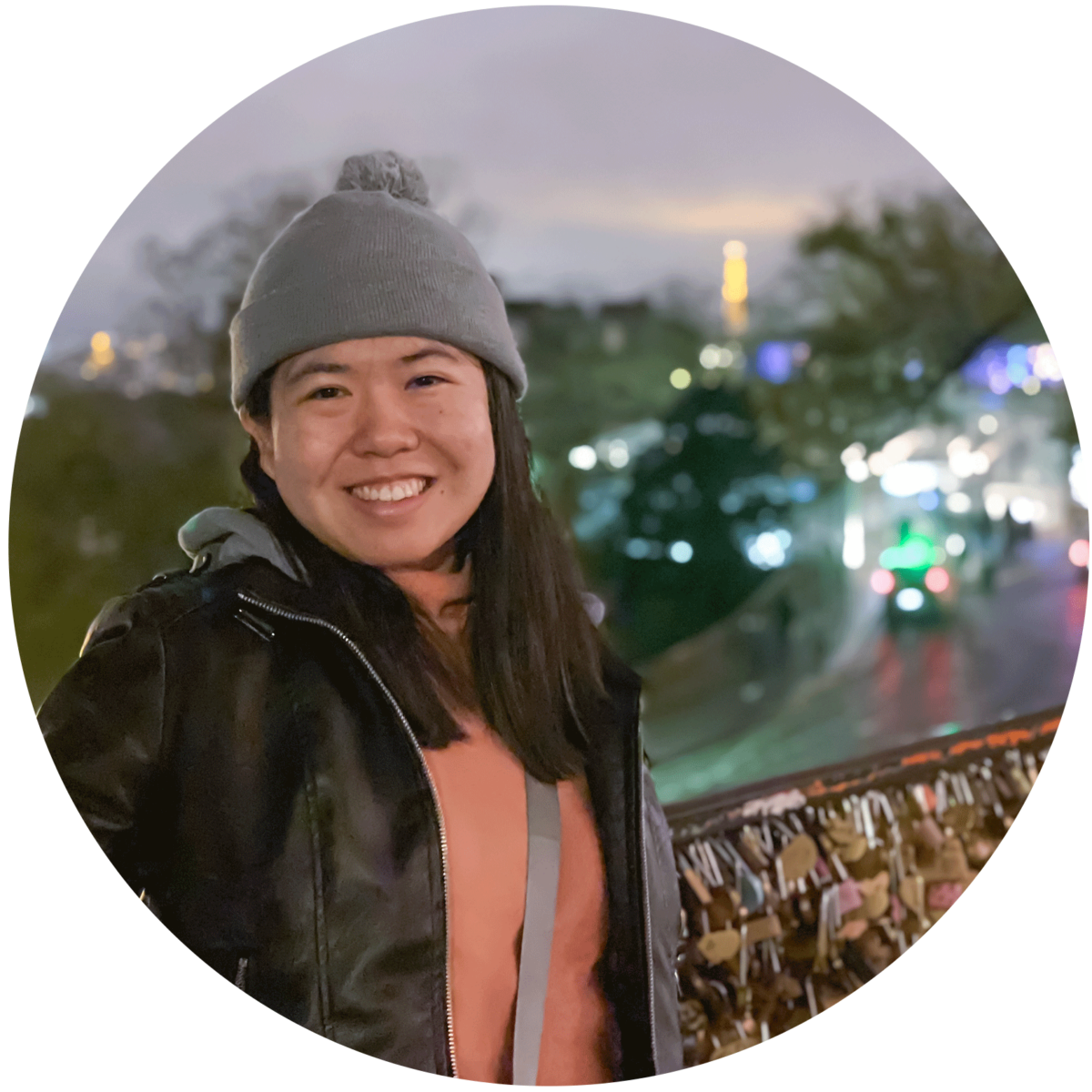By Qi Jun Chen (UC Irvine)
Too many first-generation students put off studying abroad because they believe it’s too expensive. The good news? There are so many scholarships out there just waiting for first-gen students like us to apply. I was able to score multiple scholarships that made studying abroad a reality for me.
When I first started searching for scholarships, I was overwhelmed. I knew little to nothing about what scholarship officers were looking for, and no one I knew had received a scholarship to study abroad. It didn’t help that my peers were just as confused.
Instead of having to figure it out from scratch like I did, here are all the tips and resources I learned to make the scholarship application process easier. Consider this a roadmap to funding your study abroad experience with scholarships!
1. Start early
Some of the most compatible scholarship opportunities were not available to me because I found out about them too late. So, I can’t stress enough the importance of starting as early as possible.
How early, you ask?
Many scholarship deadlines are six months to a year in advance. For example, the Fund for Education Abroad opens their summer, fall, and year applications in November the year before. That means if you plan to study abroad in the spring, you will start submitting scholarship applications somewhere around late spring the year prior.
Since I studied abroad in the fall, I started submitting applications in October.
Let’s face it, as college students, random events and unexpected assignments pop up all the time. Starting at least a year before you plan to study abroad gives you plenty of time to prepare a strong application and ensure the process goes smoothly. You’ll have more time to brainstorm your ideas, organize your thoughts, and invest in your application material.
Plus, most applications require a letter of recommendation. You’ll want to give that person enough time (two weeks or more) to write the letter.
Pro tip: Make several copies of that letter if you plan to apply for more than one scholarship, as I did.
2. Ask for help
Writing is hard, and sometimes you may feel you don’t have much to write about. Now is not the time to be shy. There are many resources—many you may not be familiar with—to support you in this process.
- Start with your campus study abroad office and ask where you can get help with writing scholarship applications—the staff will likely have a list of options.
- Next, ask your academic advisors. If nothing else, they will be excellent reviewers of your application.
- Finally, tap into your friends and family. They know you well and can help remind you of the personal anecdotes you can include to make your application stand out.
Bonus: Some campus study abroad offices hold regular scholarship writing workshops.
3. Use your campus resources
When I was writing my scholarship applications, I used a lot of campus resources. I found support centers that I didn’t even know existed. Here are a few I recommend working with—there’s one on each campus:
- Career centers: They have flyers with tips on writing good scholarship essays. They may also have workshops. Schedule an appointment with a career counselor and ask if they can provide insight on drafting your application.
- Writing centers: They are staffed by professionally trained writers who can help you with your application. In my case, UCI’s Center for Excellence in Writing and Communication helped at every step of the writing process, from brainstorming to drafting to polishing my final essays.
- Scholarship offices: They often host workshops and panels with past scholarship recipients.
This is just a list that worked for me, and you may find others. Keep an eye out for opportunities and events. For example, the UC Irvine Student Outreach and Retention Center hosts writing workshops and drop-in options where staff will revise your writing.
Use these support centers—they’re here to help you and are designed with your needs in mind!
4. Write about the real you
There’s no such thing as bad writing, and scholarship officers want to know and award the real you. Here are the writing tips I used:
- Start with your why: In any study abroad scholarship application, the student wants to study abroad. Simply stating that will not make your application competitive. Instead, get clear on why you want to study abroad and what you will get from it—professionally, personally, and academically.
- Personalize each application: Even if you are using the same core content to apply, make sure to tailor your application to each scholarship.
- Let the real you shine through: It’s safe to say yours is not the only application for any scholarship. That’s why it’s critical to showcase who you are and bring yourself to life beyond the flat screen. Highlight your challenges, character, mistakes, and achievements. Let the reviewers experience the depth and richness of who you are in three dimensions.
- Give evidence: It’s extremely important that you provide the reviewers with supporting evidence. Everyone will say, “I will learn life skills from the challenges of study abroad.” Instead, write the specific life skills or challenges and what you expect to gain and/or learn while on study abroad.
- Revise, revise, revise: Especially if you are applying for more than one scholarship—which I recommend you do! There is always room for improvement. I recommend asking others to read your application and give you feedback, then take that feedback to heart and revise.
5. Apply widely
Whatever you do, don’t limit yourself to just one scholarship. Apply to as many as possible, as this will only increase your chances of getting funding. A bunch of smaller scholarships can add up quickly and make a huge difference in the end.
You can stay organized by creating a spreadsheet to track all the scholarships. Include these columns:
- Deadline (this will help you prioritize your efforts)
- Scholarship name (link it to the website)
- Requirements (this will help you customize the application)
- Themes (list the theme of the essay – leadership, community service, etc.)
- Status (not started, in progress, submitted)
- Amount (this will help you with budgeting later)
I recommend starting with a strong personal statement and tweaking a few paragraphs to fit each individual scholarship application.
Here is a list of places I used to find funding—you may find others!
- UCEAP scholarships (the UCEAP Global Scholarship is $2,000): This is one of the best to use for study abroad scholarships. It’s a treasure trove—a single application can apply to multiple scholarships.
- Your campus scholarship site: These website pages and the scholarship advisors can help you apply for awards available only to your campus.
- Fund for Education Abroad (up to $10,000): This is an excellent option for first-generation students because preference is given to underserved and first-generation students.
- Benjamin A. Gilman International Scholarship Program (up to $8,000): This is a wonderful scholarship program. To apply, you’ll answer three prompts. They have an amazing alumni network, and a lesser-known perk is that they enroll you in international safety services.
6. Follow instructions carefully
Take the time to make sure you are following the scholarship instructions very carefully. While some instructions will likely look similar from application to application, the details matter.
Don’t go so quickly that you miss those details so that your application arrives complete, with all the required materials, for consideration. Before you submit an application, check the scholarship link in your tracking spreadsheet and make sure that what you wrote meets the reviewers’ expectations.
Finally, it’s important to remind yourself that studying abroad isn’t only about exploring new landscapes and lifestyles—it’s also about discovering the depths of your potential. With a few scholarships as your passport to adventure, you’re not just chasing academic opportunities, you’re pursuing life-changing experiences.
Whether you decide to gaze upon the Leaning Tower of Pisa or follow the northern lights of Norway, remember that every scholarship application you submit is one step closer to unlocking the world and your own extraordinary story. One that could very well change the course of your life.
May your journey be filled with wonder, growth, and endless possibilities!
Learn more from other first-generation travelers abroad
- Ricardo says the key for first-generation students abroad is to embrace being who you are
- Anna re-evaluated what her Asian American identity means to her
- Elisabet learned to embrace the complexities of all her identities













Leave A Comment